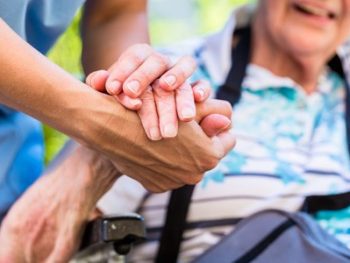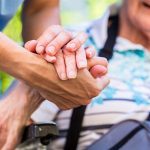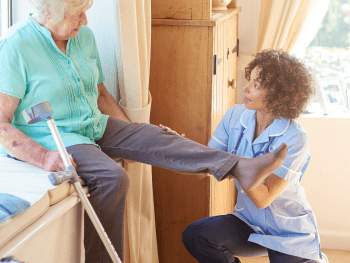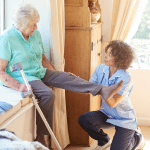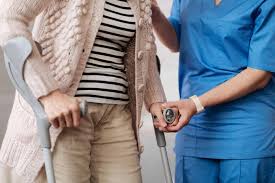Now that the first snow of the year has fallen, it’s a good time to think about safety with snow shoveling and using a snow blower. This is especially important for Senior citizens as well as those with a history of heart disease and/or heart related health conditions. Those of us living in and around the Plymouth, NH area will get plenty of chances to practice snow removal, since we average around 73 inches total snowfall annually. That’s over 6 feet of snow!
What are the health risks related to shoveling? A recent report from Harvard Medical School found the following:
- Most heart related health issues due to shoveling were noted in men. Studies have not found a link between heart attack and snow shoveling for women.
- The deeper the snow, the more men were admitted to hospitals due to near attack. If snowfall totals were 8” or more, there was a 16% increase in hospital admission from heart attack compared to days with no snow.
- Fatal heart attacks were 34% more common after snowfall of at least 8”. Also, the longer it snowed, the higher the rate of heart attack.
- These findings were not strictly limited to heart attacks from shoveling the snow-there may be other factors related to heavy snowfall that trigger heart issues, such as trying to walk thru deep snow, or pushing a car stuck in snow.

What is it about snow shoveling, or even pushing a large snow blower that creates these risks? Doctors who have investigated the problem have identified several factors:
- Snow shoveling requires forceful use of arm muscles. Many people are not used to using their arms so aggressively, and this creates strain on their circulatory system.
- This type of activity is known to cause rapid increase in pulse rate (how fast the heart beats) and blood pressure. For people with heart disease, their system may be unable to cope with sudden increases of that nature.
- Working outdoors in cold weather may cause blood vessels to constrict (tighten up), depriving blood flow to the tissues and forcing the heart to work even harder to keep up with the demand of lifting heavy shovelfuls of snow.
- In most cases, people do not take the time to warmup their muscles, as you would prior to working out. Typically, we just grab the shovel, head out the door and start flinging snow. The heart and lungs have no chance to prepare for the workload.
So what can people do to prevent a problem with winter snow removal? The American Heart Association and the Harvard Medical School list the following safety guidelines:
- Pace yourself! If you start to tire or become short of breath, take a rest break. If you were exercising and started to fatigue, you would rest before continuing-why not do the same with snow shoveling?
- Avoid eating a large, heavy meal right before going out to clear the driveway-the stomach and GI tract require extra blood flow to digest that meal. Shoveling lots of snow in addition can add stress to the heart muscle.
- If you smoke, please do not smoke while shoveling, it will deprive your muscles of needed oxygen.
- Push snow rather than throw or lift it whenever possible.
- Avoid shoveling heavy wet snow. While a cubic foot of fluffy snow may weigh as little as 5.2 lbs., a cubic foot of wet snow can weigh over 12 lbs.
- Take smaller shovelfuls and avoid using large shovels-a large shovel might seem attractive (I’ll get done quicker) but you’ll be lifting a lot more weight with each shovelful.
- Make sure to dress warmly enough to avoid hypothermia. When he was in high school, my son used to shovel our driveway in shorts and a t-shirt. Being a bit older, I would never try that! Also some people find inhaling lungful’s of cold air very hard on their breathing. Wear a kerchief or snow mask to help warm the air you breathe while shoveling.

- For folks who have had a prior heart attack, known heart disease, or multiple risk factors for heart disease, one simple recommendation is – don’t shovel the snow! These folks may best reduce the chances of a problem by getting a snow blower, hiring a plow truck or a neighborhood kid to do it for them.
Regardless of how much snow we get this year, we at Pemi Baker Community Health hope all the people living in our part of NH have a healthy and safe winter.
~by Ernie Roy, DPT


